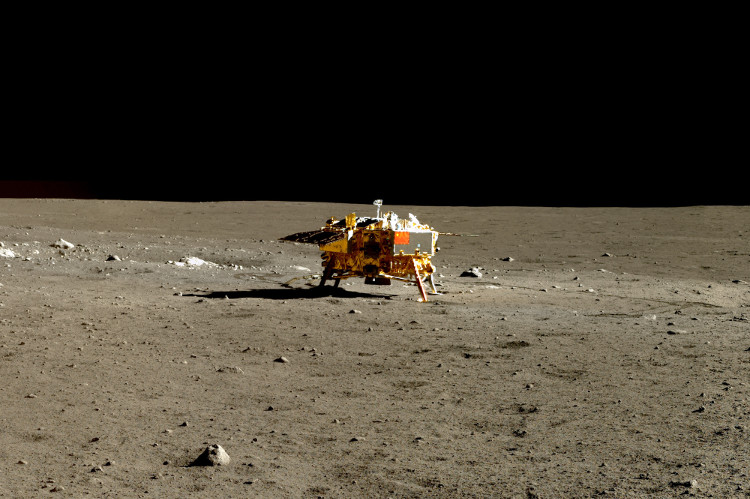China will bring plants and insects to the Moon in 2018
Scientists will put seeds and silkworm eggs on the Moon during the Hang Nga space mission 4.
China intends to carry out the Hang Nga 4 space mission to study geology and explore the effects of the Moon's gravity on insects and plants from Earth this year, the Futurism on January 5 reported. .
Earlier, China had taken two spacecraft to orbit the Moon and an expedition vehicle landed on the surface of the site under the Chinese Moon Discovery (CLEP) program , or the Chang Er program .

China will study the impact of the environment on the Moon on Earth organisms.(Photo: Ancient Code).
The task of Hang Nga 4 will begin in June with the launch of Long March 5 rocket carrying a spacecraft to orbit the Moon. Six months after the ship arrived at the intended location in orbit, a grounding vehicle and explorer vehicle would be launched to the surface of the Moon.
The landing vehicle carried an aluminum alloy case containing live seeds and insects for research, including potatoes, mustard seeds and silkworm eggs, according to Zhang Yuanxun, the main design expert of the container. Silk silk hatched from eggs will produce CO2. Meanwhile, potatoes and mustard seeds will produce oxygen through photosynthesis.
"They can together establish a simple ecosystem on the Moon," Yuanxum said. Bringing seeds and insects to the Moon can help determine the potential of people to live and work on them.
Experts are currently unclear whether Earth organisms can grow well on the Moon, where gravity is only about 16% of the Earth. The destination of Hang Nga 4's mission is, the area is widely thought to be the ideal place to build bases on the Moon.
Small gravity causes some serious impacts on human health. The astronaut astronauts are equipped with protective devices to prevent the negative effects of gravity here. However, living in an extended period of time can lead to unpredictable problems.
- Insects can find infected plants
- China will bring secret technology to the Moon
- Mr. Trump is determined to bring the Americans back to the Moon
- 2017: China set foot on the moon
- Planting flowers on the moon
- Scientists are angry because NASA canceled the mission to bring robots to the Moon
- China will bring the probe to the dark side of the Moon in 2018
- How many species of flowering plants?
- China and Russia promoted to sign an agreement to explore the historical universe
- 2017: China takes people to the Moon
- China exposes its ambition of US $ 10,000 billion in space
- China is about to plant potatoes and grow deep on the Moon?
 Van Allen's belt and evidence that the Apollo 11 mission to the Moon was myth
Van Allen's belt and evidence that the Apollo 11 mission to the Moon was myth The levels of civilization in the universe (Kardashev scale)
The levels of civilization in the universe (Kardashev scale) Today Mars, the sun and the Earth are aligned
Today Mars, the sun and the Earth are aligned The Amazon owner announced a secret plan to build a space base for thousands of people
The Amazon owner announced a secret plan to build a space base for thousands of people